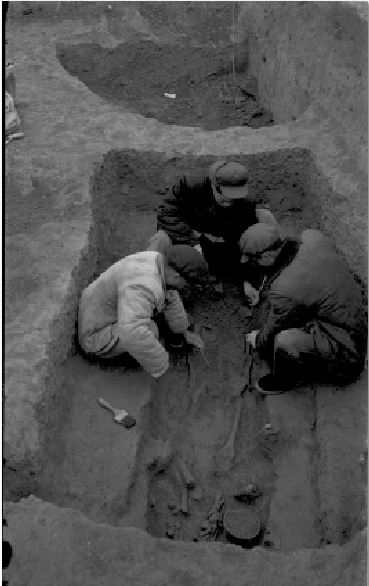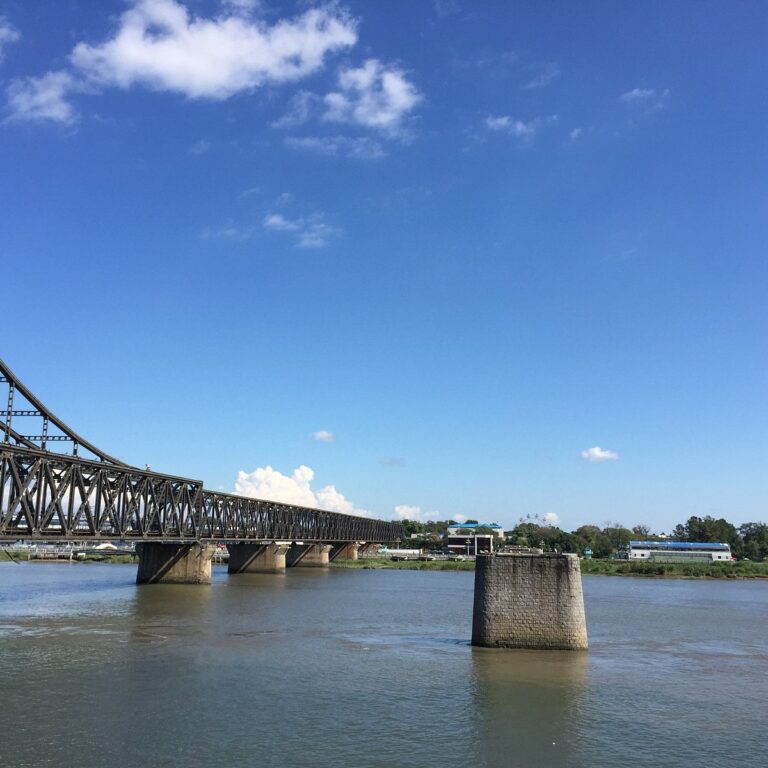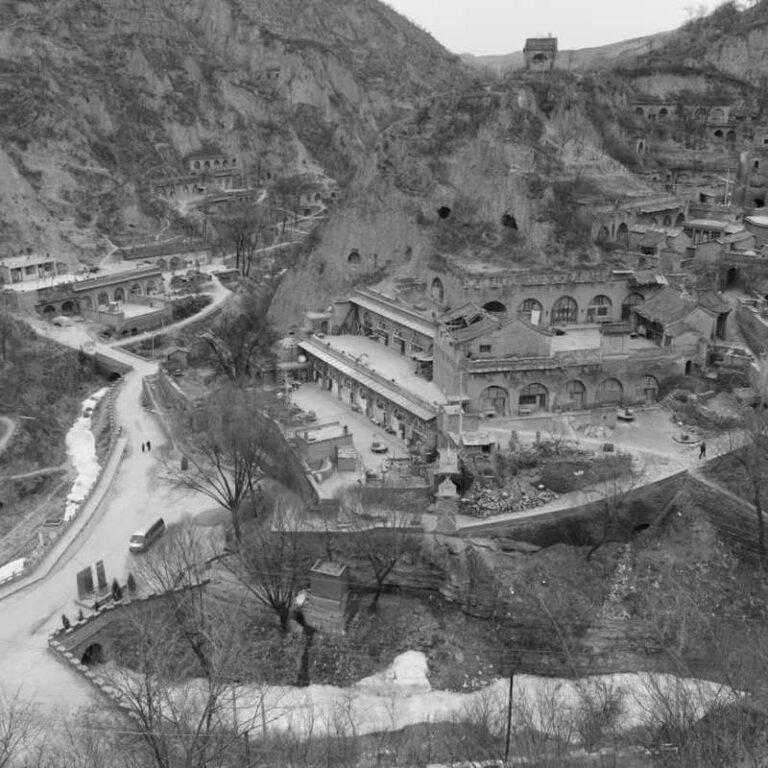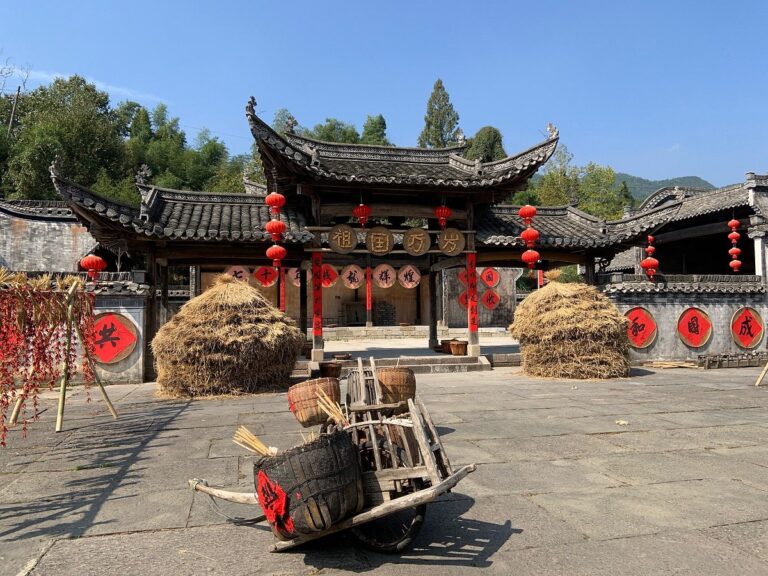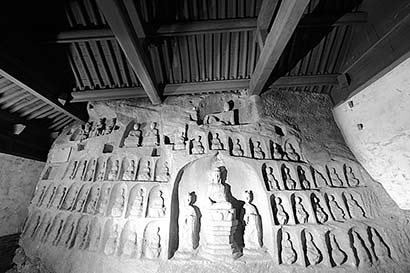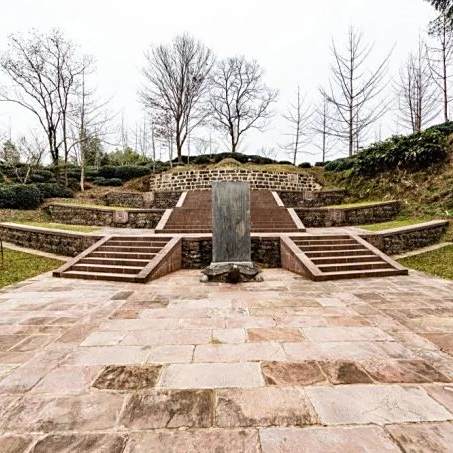Discovering Yulin Baiyunshan Temple: A Journey Through Shaanxi’s Spiritual Heart
An Essential Guide to Visiting Yulin Baiyunshan Temple
In This Guide
- An Essential Guide to Visiting Yulin Baiyunshan Temple
- The Rich History of Yulin Baiyunshan Temple
- Main Highlights: What to See at Yulin Baiyunshan Temple
- Planning Your Visit: A Practical Guide
- Tickets, Hours, and Booking
- How to Get There
- Local Cuisine and Accommodation
- Frequently Asked Questions
- Final Thoughts on Your Trip
Nestled within the enchanting landscapes of Shaanxi Province, the Yulin Baiyunshan Temple, or Baiyun Guan, stands as a serene testament to China’s rich spiritual heritage. Known for its ethereal beauty, the temple is perched upon the misty peaks of Baiyun Mountain, a site that has long captivated the hearts of both pilgrims and nature enthusiasts alike. With its origins tracing back to the Song Dynasty, this Daoist sanctuary has evolved into a cultural treasure, adorned with intricate architecture and surrounded by lush greenery that whispers tales of its storied past.
Visitors to Baiyunshan Temple are greeted not only by the striking vistas of rolling hills and cloud-kissed summits but also by a profound sense of tranquility. The temple complex harmoniously integrates elements of Daoism, Buddhism, and Confucianism, showcasing a unique blend of spiritual practices that reflect the diverse tapestry of Chinese religious life. The sacred atmosphere is further enhanced by artistic representations of deities, elegant calligraphy, and stunning sculptures that adorn the temple grounds.
Whether you seek spiritual solace, a glimpse into ancient traditions, or simply a breathtaking view of nature, Yulin Baiyunshan Temple offers an unforgettable experience. As you ascend the winding paths that lead to this celestial abode, prepare to immerse yourself in a world where history, spirituality, and the beauty of nature converge, inviting you to explore the depths of both the temple and your own inner peace.
The Rich History of Yulin Baiyunshan Temple
The Yulin Baiyunshan Temple, nestled in the scenic Baiyun Mountain area near the Yellow River in Shaanxi Province, has a rich and storied history that dates back to the Song Dynasty. Its name, which translates to “White Cloud Mountain,” reflects the ethereal beauty of the region, often shrouded in mist and clouds.
The temple is primarily dedicated to Taoism and is known as Baiyun Guan. This site has long been a spiritual haven for practitioners and followers of Taoism, with its origins tracing back to the Ming Dynasty, specifically during the reign of Emperor Wanli. The temple was established by a renowned Taoist priest, Li Yufeng, who journeyed from the nearby Zhongnan Mountains. Legend has it that he came to Baiyun Mountain to gather medicinal herbs and to provide healing to the local populace, leading to the construction of the temple as a center for spiritual practice and healing.
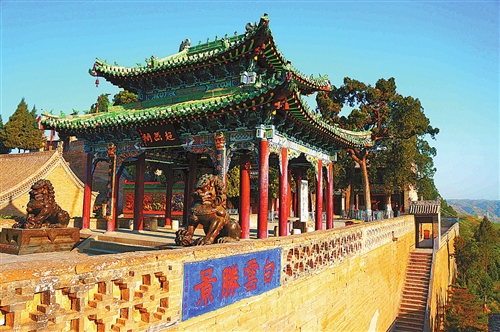
Yulin Baiyunshan Temple.
Over the centuries, the Baiyunshan Temple has undergone numerous renovations and expansions, reflecting the architectural styles and cultural influences of various dynasties, including the Ming and Qing. The temple complex features a harmonious blend of Taoist, Buddhist, and Confucian elements, showcasing intricate sculptures, paintings, and calligraphy that represent the cultural riches of the region. This unique architectural synthesis is one of the reasons why the temple is considered one of the largest ancient architectural complexes in Northwest China.
In addition to its architectural significance, Baiyunshan Temple has played a vital role in local religious life and cultural traditions. It has served as a pilgrimage site for many devotees, particularly during traditional festivals, where rituals and ceremonies are held to honor the deities and seek blessings. The temple’s scenic surroundings, characterized by lush greenery and tranquil landscapes, further enhance its appeal as a contemplative retreat.
Today, the Baiyunshan Temple remains a prominent cultural landmark in the region, attracting thousands of visitors each year. It stands as a testament to the enduring legacy of Chinese spirituality and the intricate relationship between nature and religion, inviting travelers and pilgrims alike to explore its serene beauty and historical depth.
Main Highlights: What to See at Yulin Baiyunshan Temple
Nestled near the banks of the Yellow River, Yulin Baiyunshan Temple, also known as Baiyun Temple, is a captivating site that harmoniously blends natural beauty with rich cultural heritage. Here are the main highlights that make this destination a must-visit:
-
Scenic Mountain Views: Baiyunshan, named for its year-round shrouding in white clouds, offers breathtaking panoramic views of the surrounding landscape. The temple is set against a backdrop of lush greenery, creating a serene environment perfect for contemplation and relaxation.
-
Historical Significance: Dating back to the Song Dynasty, Baiyun Temple showcases the architectural styles of the Ming and Qing Dynasties. The temple complex is considered one of the largest ancient architectural sites in northwestern China, housing various shrines and halls dedicated to Taoist, Buddhist, and Confucian traditions.
-
Cultural Treasures: Visitors can explore the intricately designed halls adorned with exquisite sculptures, paintings, and calligraphy. The temple is not only a place of worship but also a repository of rich cultural artifacts, reflecting the artistic achievements of past dynasties.
-
Spiritual Retreat: The temple serves as a significant pilgrimage site for Taoists. It attracts visitors seeking spiritual solace and enlightenment, offering an opportunity to participate in traditional rituals and enjoy the peaceful atmosphere.
-
Accessibility and Amenities: Located just 5 kilometers south of Jiajin County, the temple is easily accessible, making it a convenient stop for travelers. The site is open year-round, providing ample opportunities for exploration at any time.
-
Surrounding Nature: The Baiyunshan area is characterized by its natural beauty, with hiking trails winding through the hills. This makes it an ideal location for outdoor enthusiasts looking to experience both culture and nature in one visit.
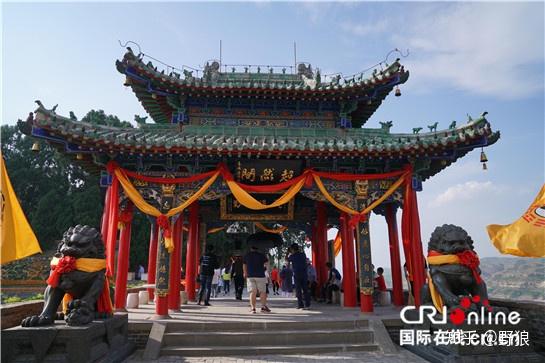
Yulin Baiyunshan Temple.
Whether you’re drawn by the historical architecture, the spiritual ambiance, or the stunning natural scenery, Yulin Baiyunshan Temple offers a unique and enriching experience for every traveler.
Planning Your Visit: A Practical Guide
Practical Guide to Visiting Yulin Baiyunshan Temple
Baiyunshan Temple, nestled in the picturesque landscape of Yulin, Shaanxi province, is a must-visit for those interested in Chinese culture and spirituality. Here’s everything you need to know for a smooth and enjoyable visit.
Getting There
Location:
Baiyunshan Temple is located approximately 5 kilometers south of Ji County, near the Yellow River. The address is Renjiapan Village, Yuko Township, Ji County, Yulin City, Shaanxi Province.
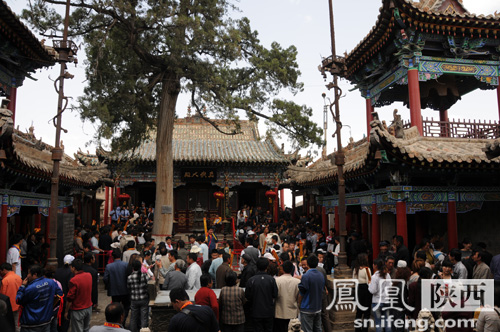
Yulin Baiyunshan Temple.
Transportation:
– By Car: If you’re driving from Yulin city center, expect around a 30-minute journey. The roads are well-maintained, making for a pleasant drive through the countryside.
– Public Transport: Local buses and taxis are available, but it’s advisable to check the latest schedules as they can vary.
Opening Hours
Baiyunshan Temple is open year-round, 24 hours a day. However, it’s best to visit during daylight hours to fully appreciate the scenery and architecture.
Admission Fees
- General Admission: The entrance fee is approximately 60 CNY (Chinese Yuan). Discounts may be available for students and children, so be sure to inquire.
- Special Events: Certain festivals may have additional charges for special performances or ceremonies.
What to Expect
Architectural Beauty:
The temple is known for its stunning architecture that combines Taoist, Buddhist, and Confucian elements. Visitors will find intricate carvings, beautiful statues, and serene landscapes that enhance the spiritual atmosphere.
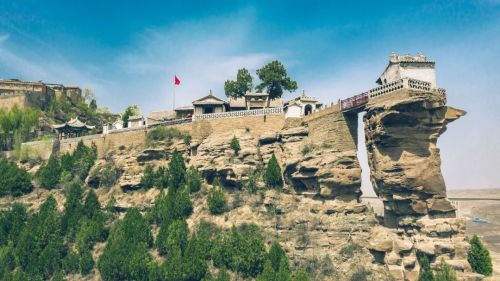
Yulin Baiyunshan Temple.
Scenic Views:
The temple is surrounded by lush greenery and offers breathtaking views of the mountains and clouds, especially during the early morning or late afternoon when the sunlight casts a magical glow over the landscape.
Cultural Significance:
Baiyunshan Temple is historically significant, having been built during the Song Dynasty and expanded in the Ming and Qing Dynasties. It serves as a gathering place for Taoist practitioners and offers insights into local religious practices.
Tips for Your Visit
- Dress Appropriately: As a place of worship, it’s respectful to wear modest clothing. Comfortable shoes are also recommended, as the terrain can be uneven.
- Stay Hydrated: Bring water, especially if you plan to hike the surrounding trails. The elevation can be taxing, especially during warmer months.
- Respect the Environment: Be mindful of the natural surroundings. Avoid littering and stay on designated paths to protect the delicate ecosystem.
- Photography: While photography is generally permitted, be respectful of worshippers and avoid taking photos during ceremonies.
Nearby Attractions
After visiting Baiyunshan Temple, consider exploring these nearby sites:
– Yellow River Scenic Area: Located just a short drive away, this area features stunning views and various recreational activities.
– Ji County Ancient City: A historical site rich in culture and architecture, perfect for those interested in the region’s history.
– Local Cuisine: Try local Shaanxi dishes at nearby restaurants. Look for specialties like biangbiang noodles and Yangrou Paomo (bread soaked in mutton soup).
Final Thoughts
A visit to Baiyunshan Temple offers a unique blend of spirituality, history, and natural beauty. Whether you are a devout practitioner or a curious traveler, this tranquil site is a perfect escape into the heart of Chinese culture. Plan your visit accordingly, and enjoy the serene ambiance that Baiyunshan Temple has to offer!
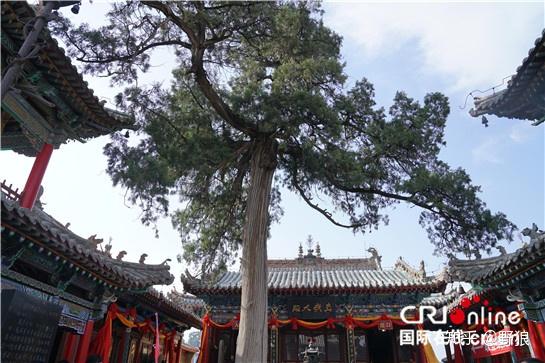
Yulin Baiyunshan Temple.
Tickets, Hours, and Booking
When planning your visit to Yulin Baiyunshan Temple, also known as Baiyun Guan, it’s essential to know the ticketing details to ensure a smooth experience.
Ticket Prices
- Adults: Approximately 63 RMB (around $9 USD)
- Children: Approximately 32 RMB (around $4.50 USD)
- Family Ticket: 96 RMB for one adult and one child
Opening Hours
Baiyunshan Temple is open year-round, allowing visitors to explore its serene environment and rich cultural heritage at their convenience. The temple operates daily from 7:00 AM to 5:00 PM.
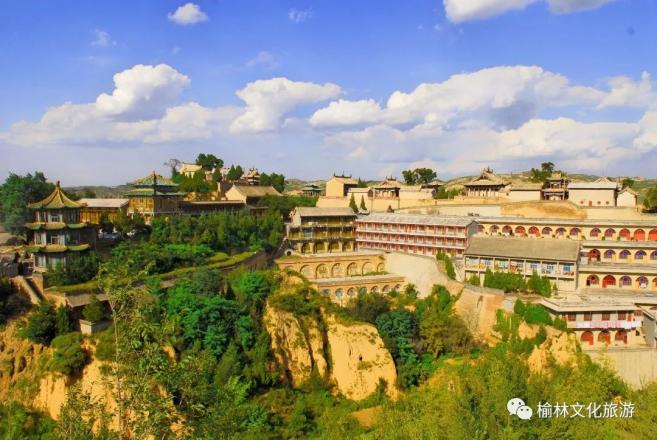
Yulin Baiyunshan Temple.
Additional Information
- Location: The temple is situated about 5 kilometers south of Jia County, right along the banks of the Yellow River, making it accessible for both local and international travelers.
- Cultural Significance: As a prominent Taoist site, the temple features a mix of religious architecture, including structures dedicated to Taoism, Buddhism, and Confucianism, along with various cultural artifacts.
Recommendations
- Purchase Tickets in Advance: It’s advisable to buy your tickets ahead of time, especially during peak tourist seasons, to avoid long waits.
- Guided Tours: Consider joining a guided tour to fully appreciate the historical context and cultural significance of the temple and its surroundings.
Make sure to plan your visit accordingly to enjoy the beauty and tranquility of Baiyunshan Temple!
How to Get There
Getting to Yulin Baiyunshan Temple is a journey worth taking, as it leads you to a serene and culturally rich destination. The temple is located approximately 5 kilometers south of Ji County in Yulin City, Shaanxi Province, and is easily accessible through various transportation options.
By Air
The nearest major airport is Yulin Dongsheng Airport (UYN), located about 40 kilometers from the temple. This airport offers domestic flights from major cities such as Beijing, Xi’an, and Shanghai. From the airport, you can hire a taxi or take a shuttle bus to Yulin city center, which takes about 40 minutes. Once in Yulin, you can opt for a local bus or taxi to reach Baiyunshan Temple.
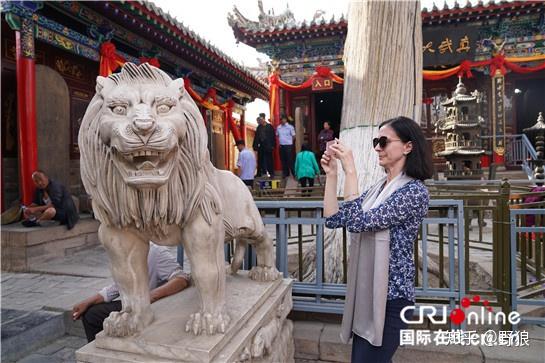
Yulin Baiyunshan Temple.
By Train
Yulin Railway Station is well-connected to several cities across China. High-speed trains from Xi’an take approximately 2 hours, while trains from Beijing can take around 6 to 8 hours depending on the service. From the train station, you can take a taxi or a ride-hailing service to reach the temple, which is roughly a 30-minute drive away.
By Bus
Long-distance buses to Yulin depart from many major cities, including Xi’an and Baotou. The Yulin Long-distance Bus Station is located in the city center. Buses are an economical choice, but travel times can vary significantly—ranging from 4 to 10 hours based on your departure point. Upon arriving at the bus station, you can easily find taxis or local buses heading to Baiyunshan Temple.
By Car
For those who prefer driving, renting a car is a convenient option. The temple is accessible via the G55 highway, making it easy to navigate. The scenic route offers beautiful views of the surrounding landscape, and the drive from Yulin city takes about 30 minutes. Ensure you have a GPS or a reliable map app, as signage may not always be clear.
Local Transportation
Once you arrive at Baiyunshan Temple, local transportation options include walking, as the temple area is compact and pedestrian-friendly. Alternatively, if you wish to explore further afield, consider hiring a local guide or joining a tour that can provide transportation to other nearby attractions.
Tips for Travelers
- Plan Ahead: Check the schedules for flights, trains, and buses in advance, especially during peak travel seasons.
- Language: Basic knowledge of Mandarin or a translation app can be helpful, as English may not be widely spoken.
- Weather Preparedness: Be aware of the seasonal weather conditions in Shaanxi, as they can affect travel plans.
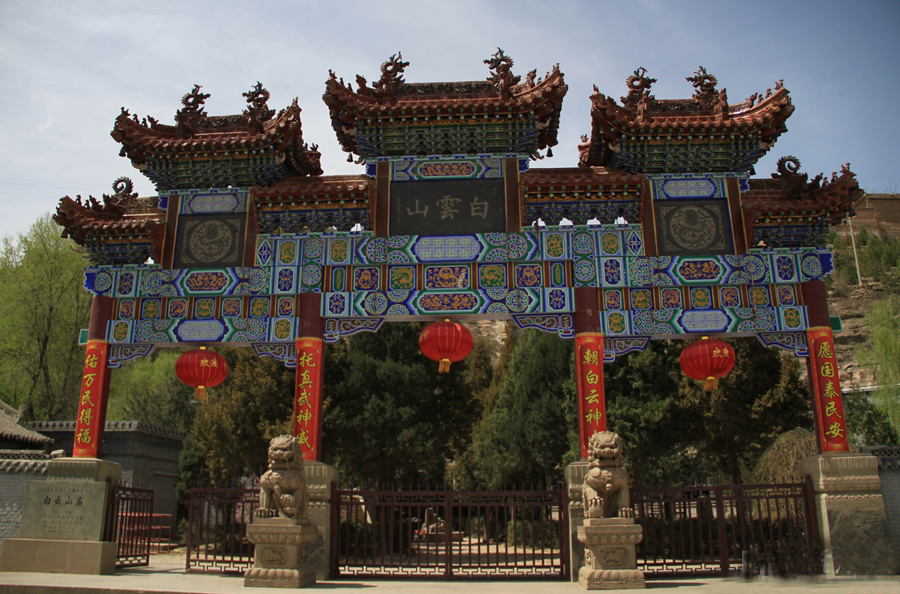
Yulin Baiyunshan Temple.
With its easy access and various transportation options, visiting Yulin Baiyunshan Temple is an inviting experience that blends natural beauty with spiritual tranquility. Enjoy your journey!
Local Cuisine and Accommodation
When visiting Yulin Baiyunshan Temple, a serene destination nestled in the picturesque Baiyun Mountain area, you’ll find a delightful array of local cuisine and comfortable accommodations to enhance your experience.
Culinary Delights
Exploring the local food scene is a must, as this region is known for its rich culinary heritage. Here are some recommendations:
-
Jiazhou Snack City (佳州小吃城)
Located just a short drive from the temple, this bustling food market offers a variety of traditional Northwest Chinese dishes. Here, you can sample local favorites such as Rou Jia Mo (Chinese hamburger) and Yangrou Paomo (lamb soup with bread). It’s an excellent spot to immerse yourself in authentic flavors. -
Longmen Barbecue (龙门烧烤)
For a more casual dining experience, Longmen Barbecue is popular among locals for its grilled meats and skewers. The lively atmosphere makes it a great place to unwind after a day of exploring. -
Jiaxiang Pavilion (佳湘阁)
This restaurant features a blend of Hunan and Shaanxi cuisines, known for their bold flavors and spices. It’s an ideal choice for those looking to indulge in a heartier meal. -
Huawallace (华莱士·全鸡汉堡)
If you’re in the mood for a quick bite, check out this fast-food outlet that offers a delicious twist on the traditional chicken burger. Perfect for a quick meal before heading back to your explorations.
Where to Stay
Accommodations around Baiyunshan Temple cater to various preferences and budgets, ensuring a restful stay.
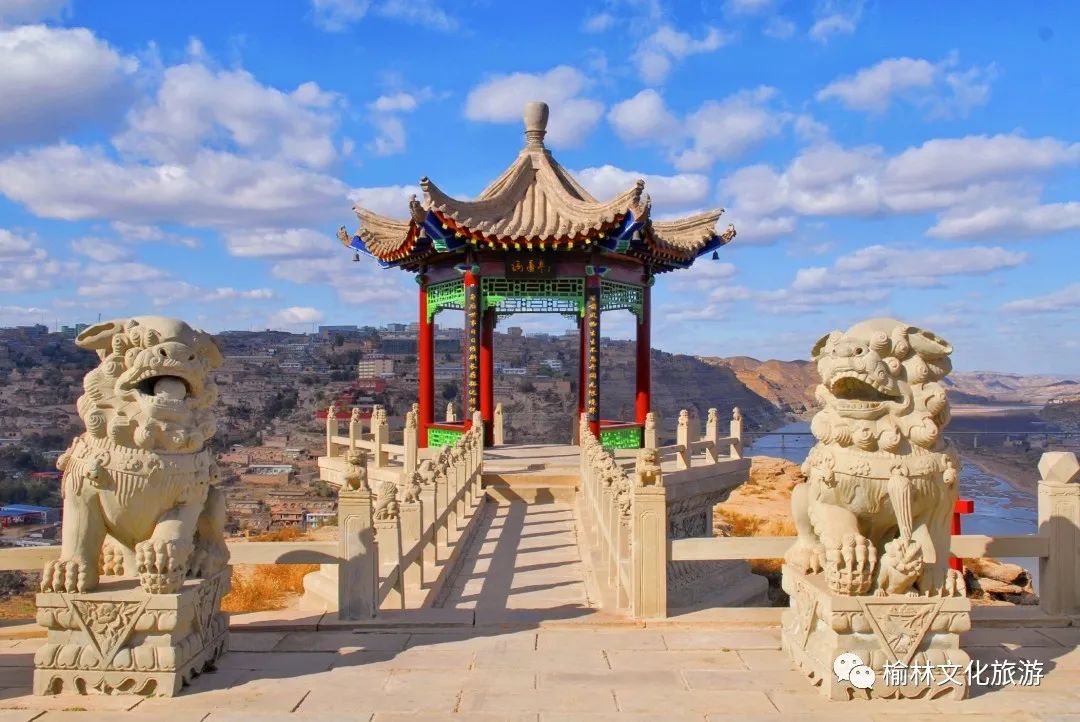
Yulin Baiyunshan Temple.
-
Hongyi Cave Hotel (红忆窑洞酒店)
Experience a unique stay in this cave hotel, which reflects the traditional architecture of the region. With cozy rooms and modern amenities, it provides an authentic yet comfortable experience, just a short distance from Baiyunshan Temple. -
Orchid Garden Hotel (兰花花园林酒店)
This hotel offers a tranquil environment with beautiful garden views. Guests can enjoy well-furnished rooms and convenient access to local attractions. It’s perfect for those looking to relax in nature. -
Yumei Grand River Hotel (榆美大河酒店)
A well-rated choice among travelers, this hotel features spacious rooms and excellent service. Located near major transport links, it’s a practical option for exploring the surrounding area. -
No. 55 Inn (55号客栈)
This charming inn provides a homely atmosphere with personalized service. It’s an excellent choice for travelers seeking a cozy and intimate setting.
Conclusion
Whether savoring the local delicacies or enjoying a peaceful night’s rest, the Baiyunshan Temple area promises a fulfilling travel experience. Don’t miss the chance to indulge in the culinary offerings and relax in one of the welcoming accommodations nearby.
Frequently Asked Questions
Frequently Asked Questions about Yulin Baiyunshan Temple (白云山庙)
-
What is the location of Baiyunshan Temple?
Baiyunshan Temple is situated approximately 5 kilometers south of Jia County, near the Yellow River in Yulin City, Shaanxi Province, China. Its scenic surroundings, often shrouded in clouds, contribute to its tranquil atmosphere. -
What are the operating hours of Baiyunshan Temple?
The temple is open 24 hours a day, year-round, allowing visitors the flexibility to explore at their convenience. -
Is there an entrance fee for visiting Baiyunshan Temple?
Yes, the entrance fee is approximately 60 RMB for adults. Reduced prices may be available for students and children. It is advisable to check local listings or the temple’s official website for updated pricing. -
What should I wear when visiting Baiyunshan Temple?
Comfortable clothing and sturdy shoes are recommended, as the area involves walking and may have uneven terrain. If visiting during warmer months, wearing a hat and applying sunscreen can help protect against sun exposure. -
Are there any facilities available for visitors?
Yes, the temple offers basic facilities, including rest areas. However, it is recommended to bring along water and snacks, especially if you plan to spend a significant amount of time exploring the surrounding nature. -
Can I take photos inside the temple?
Photography is generally permitted in the temple grounds, but it is respectful to check for any specific restrictions or guidelines upon arrival. Some worship areas may have limitations to maintain a serene environment. -
Is Baiyunshan Temple accessible by public transportation?
While there may be limited public transportation options to the temple, it is recommended to consider renting a car or using a taxi for convenience. Having a personal vehicle also allows you to explore the beautiful surrounding landscapes. -
What can I expect to see at Baiyunshan Temple?
Visitors can explore various architectural styles reflecting Daoist, Buddhist, and Confucian influences. The temple features beautiful sculptures, paintings, and calligraphy. The surrounding natural scenery, including mountains and lush greenery, adds to the overall experience, making it a perfect spot for both spiritual reflection and nature appreciation.
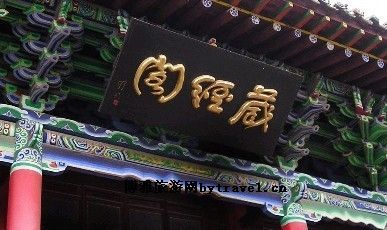
Yulin Baiyunshan Temple.
Final Thoughts on Your Trip
In the heart of Shaanxi province, Yulin Baiyunshan Temple stands as a testament to the region’s rich cultural heritage and spiritual significance. Nestled amidst breathtaking natural beauty, this temple not only serves as a sanctuary for devotees but also invites travelers to immerse themselves in the tranquility of its surroundings. Whether you are drawn to its historical architecture, the serene ambiance, or the captivating legends that echo through its halls, a visit to Baiyunshan Temple promises a profound experience.
As you explore the temple grounds, take a moment to appreciate the harmonious blend of Taoist, Buddhist, and Confucian influences that reflect the diverse spiritual landscape of China. From the intricate carvings to the lush greenery enveloping the temple, every detail contributes to an atmosphere of peace and reflection.
Whether you seek spiritual enlightenment, cultural enrichment, or simply a respite from the hustle and bustle of daily life, Baiyunshan Temple offers a unique opportunity to connect with both nature and history. As you leave this sacred site, carry with you the serenity and inspiration that this remarkable temple imparts, and let it be a reminder of the beauty found in both faith and nature. Embrace the journey, and let your travels through Yulin unfold in the spirit of exploration and discovery.
